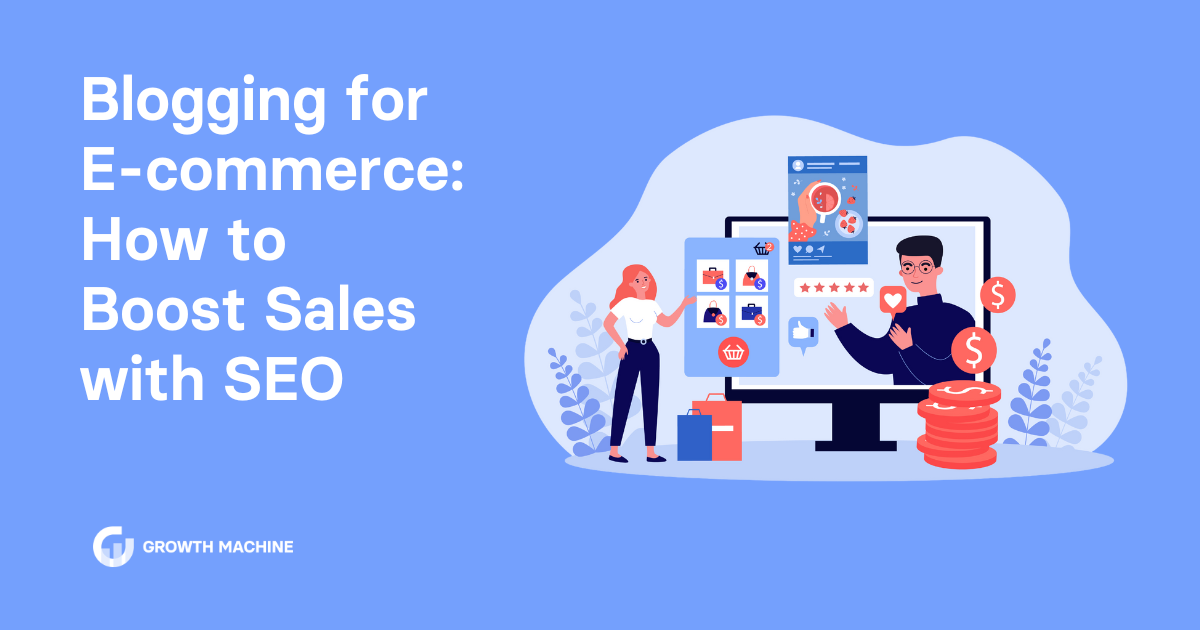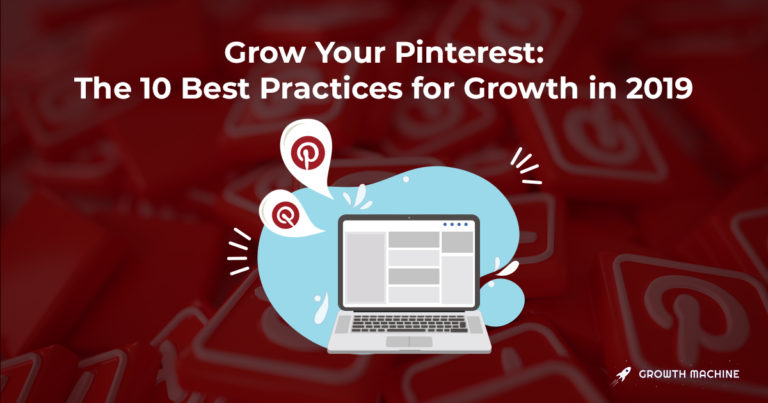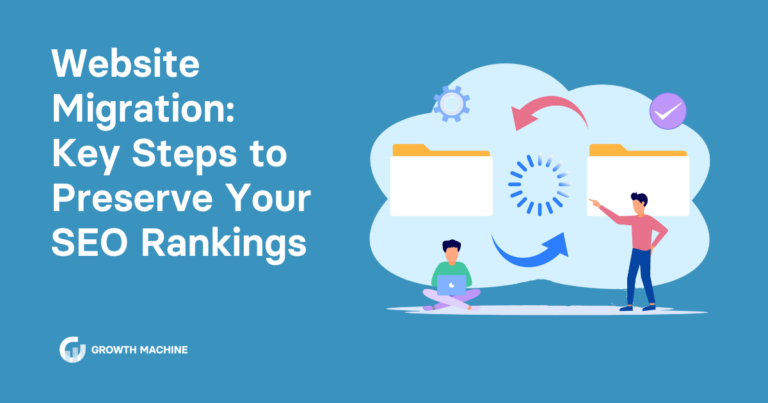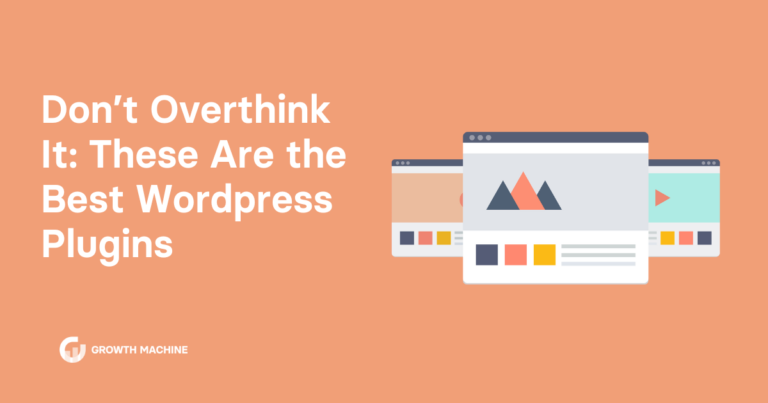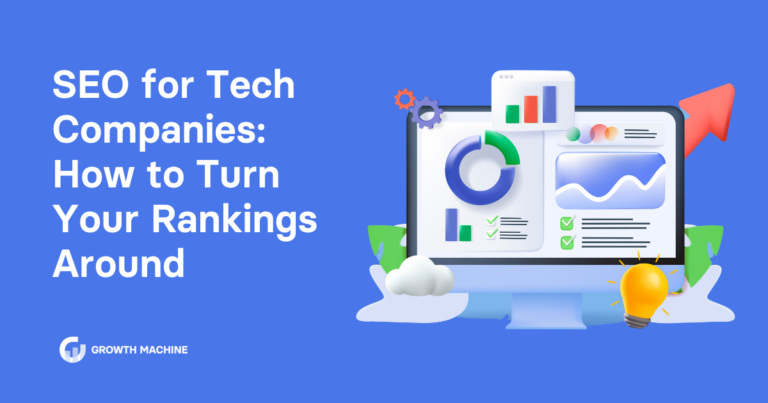Blogging for E-Commerce: How to Boost Sales with SEO
It seems like everyone has a Shopify store these days. But simply having an e-commerce website isn’t enough anymore. You also need to make sure that your store drives consistent traffic and sales.
If you’re looking to create an online store that doesn’t just survive, but thrives, search engine optimization is the answer. It all starts with implementing effective strategies around blogging for e-commerce.
Let’s unpack why an e-commerce blog can be a powerful tool in your arsenal, offering a unique way to connect with customers, enhance your SEO efforts, and drive more sales.
3 Reasons You Should Be Blogging for E-Commerce
As a busy e-commerce business owner, you may feel like the last thing you have time for is managing a blog.
Hear us out — content marketing is your secret weapon for driving more users to your e-commerce site and converting that website traffic into dedicated customers.
Here’s how.
1. Address Customer Needs
Creating a blog for your e-commerce store is a great way to provide valuable, informative content for your customers. You can use it to address their interests and common pain points, get to know them better, and learn what truly makes them tick.
By crafting articles for your blog, you not only engage but also inform your audience about your products and how they can solve your customers’ unique problems. This approach also establishes your brand as an authority, which can boost customer trust and increase long-term loyalty.
2. Boost Brand Awareness and SEO
A well-executed e-commerce blog with targeted content can significantly enhance your online visibility.
By melding thorough keyword research with the latest e-commerce SEO strategies, your blog posts can attract more organic traffic from search engines.
Remember: Each blog post is a fresh opportunity to rank for specific keywords that your target audience is searching for. By crafting content that matches their search intent, you make it easier for them to find you among a sea of competitors.
3. Enhance User Engagement and Conversion Rates
Effective blog content does more than just drive traffic; it can also improve conversion rates for your e-commerce store.
By incorporating high-quality visuals of your products and using clear, compelling calls to action, your blog can guide readers toward making a purchase.
Don’t forget to update your blog regularly with engaging content that keeps users coming back and provides multiple touchpoints for conversion.
Still not convinced that your blog has unlimited potential to boost your business? Check out how we implemented an SEO strategy to help this dog supplement brand increase site traffic by 11,212% in only 10 months!
Key Strategies for E-Commerce Blogging Success
If you’re new to the world of SEO, don’t stress. You don’t have to be an expert blogger to create amazing content that drives more people to your e-commerce site.
Here are a few tips to help get you started.
Learn and Apply SEO Fundamentals
Launching a brand new blog? Here are a few SEO basics you’ll need to understand to optimize your e-commerce blog for search engines:
- Keyword research: Understand the words and phrases your target audience uses when searching for your store’s products. Then, incorporate those keywords naturally into your blog content.
- Develop a content marketing strategy: Using what you’ve learned in your keyword research, develop a robust content strategy that covers what topics you’ll write about and how you plan to optimize and distribute your content.
- Create high-quality content: Write informative and engaging blog posts that address user queries and position your products as the solution to their problems.
- Visuals: Incorporate high-quality images and product photos to complement your blog text and further increase engagement. Your images can even link out to your product pages to drive more conversions.
Understand Your Blogging Platform
As a small business owner, it can be tough to choose a blogging platform. After all, there are so many options out there.
When choosing between e-commerce platforms, Shopify and WordPress both offer robust solutions for blogging.
We love the Shopify app because it integrates blogging with your existing e-commerce store, making it a seamless fit for those already on the platform. Their API also integrates well with other e-commerce marketing features.
You can also never go wrong with WordPress. Known for its extensive SEO capabilities, including the Yoast plugin for SEO, it’s an ideal choice if your focus is on quality content creation and organic search visibility.
Decide How You’ll Promote Your Content
When blogging for e-commerce, creating great content is only half the battle. You also need a strategy for promoting that content.
For most e-commerce site owners, social media is a no-brainer for promoting blog content. You’re likely already using it to promote your products and services, so you can also use social platforms to help your blogs reach a wider audience. You can even integrate tools like Instagram Shopping, Facebook Shops, and TikTok Shop to drive social media viewers to make purchases without leaving the app.
Aside from social media, email marketing remains a cornerstone in e-commerce marketing. By integrating your blog posts into your email newsletters, you can directly reach your audience’s inboxes with highlights or exclusive insights that aren’t available anywhere else. You can also segment your email list based on customer interests and past purchasing behavior to dramatically increase the relevance and effectiveness of your promotions.
Another lesser-known way to promote your online store is via podcasts. You can transcribe popular episodes into blog posts using tools like ClickUp and Podium, which makes creating new content a breeze and helps get more eyes on your store.
Leverage Analytics
When it comes to tracking the performance of your blog posts, there’s no shortage of tools at your disposal.
When it comes to SEO for online business, the gold standard is still Google Analytics. But both Shopify and WordPress also have excellent built-in analytics tools.
Using the data from these platforms, you can refine your strategy by understanding what works and what doesn’t. This will allow you to optimize future blog content for better performance and to add more value to your target audience.
Learn From the Pros: 3 Brands Raising the Bar in Blogging for E-Commerce
To truly grasp the impact that a successful blog can have in the e-commerce space, let’s dive into a few examples of businesses who are nailing their blogging strategy, drawing large audiences, and driving significant conversions through expertly crafted content.
1. Everlane: Transparency and Trend Insights
Everlane — a clothing retailer known for its commitment to transparency and ethical practices — uses its “Everworld Stories” blog to educate consumers about the industry and its manufacturing process.
By detailing the origin of the materials and the working conditions of their factories, Everlane not only stays true to its brand ethos, but also builds trust with its customers.
Their posts are not only informative but beautifully integrate high-quality images and engaging storytelling that establishes them as a go-to resource for fashion lovers and ethical shoppers alike.
2. Glossier: Community and Customer-Centric Content
As a beauty brand that was born out of a blog, it’s no wonder that Glossier continues to leverage this platform to foster a tight-knit community.
The Glossier blog, “Into The Gloss,” features makeup tips, skincare routines of top celebrities, and interviews with real users who share their beauty journeys.
Using this approach, Glossier has not only been able to maintain a strong connection with its audience, but has also spurred user-generated content and feedback, turning their customers into loyal brand ambassadors.
3. REI: Expert Advice for Outdoor Enthusiasts
With everything from detailed guides on choosing the right hiking boots to tips for environmental sustainability, REI’s “Expert Advice” blog is a treasure trove of content for outdoor enthusiasts.
By leveraging advice from industry experts and incorporating real-life user experiences and turning them into digestible “gear guides,” REI’s blog serves as an educational platform that boosts their e-commerce sales by confidently guiding consumer purchasing decisions.
Take Your Store to the Next Level
Your e-commerce blog is more than just a digital marketing tool; it’s a dynamic part of your online presence that reflects the true essence of your brand.
By providing continuous value through your blog posts, you invite customers to engage with you on a deeper level, fostering loyalty and driving more sales.
At Growth Machine, we not only apply the latest SEO trends but also collaborate with industry experts to deliver content that’s innovative and grows your e-commerce store’s visibility online. From ideation to publication, our search-focused content not only captures more traffic but supports the sustained growth of your brand.
Ready to elevate your e-commerce presence? Contact us today and we’ll create content that drives results!

